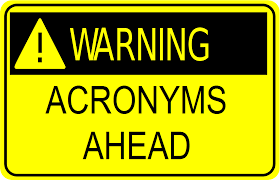Liz Morrish discusses some new ways the Conservative government will seek to assess and rank universities. ‘Learning gain’ is about to be ‘a thing’.
It is just over two weeks after the General Election, and our thoughts turn to the prospect of more cuts in public spending, a new leader for the Labour Party, some uncertainty over Brexit and the referendum on EU membership, and, post UKIP, a somewhat muted dialogue over immigration. But what lies in the future for higher education? Have you been paying selective attention over the months leading up to the election? A tuition fee cut may have lodged in your memory, but that was Labour Party policy, and we can forget that now. What does a Conservative government have planned for universities? We know that abolition of the cap on student numbers was already in the offing, as was a national postgraduate loan system for taught masters and PhD courses. That is not the interesting bit. The game-changer is encoded in this section:
“We will ensure that universities deliver the best possible value for money to students: we will introduce a framework to recognise universities offering the highest teaching quality… and require more data to be openly available to potential students so that they can make decisions informed by the career paths of past graduates”.
Value for money: As students pay higher fees, they have been demanding more classroom time, better feedback and higher-grade campus facilities. These have largely been delivered. The focus is now shifting to what the government recognises as value for money – are students learning anything worthwhile? For the last twenty years, as universities have come under greater pressure to justify (especially non-vocational) courses, we have been speaking the language of generic or ‘transferable’ skills. At my university, we make the claim that graduates will be able to demonstrate attributes such as information, organisational and communication skills, and also ‘intellectual agility’ defined as, “aptitude for independent, critical thought and rational inquiry, alongside the capacity for analysis and problem-solving in multiple contexts” [NTU Strategic Plan 2010-2015 p. 10]. Now, it looks as if we will have to bolster that claim with actual hard evidence. All in the name of accountability – a call which never fails to extend its dominion.
A framework to recognise universities offering the highest teaching quality: This is what has been flagged as the Teaching REF. The good news is, at last we have found a use for learning outcomes. It was probably inevitable that as soon as we were obliged to position a degree course as merely an accumulation of learning outcomes, and higher education as a set of generic skills, that one day, this would be called to account. Even better news, demonstrating “the highest teaching quality” is likely to shine a spotlight on students, not on academics, who usually occupy the panopticon. The generation of students who have become used to earning reputational credit for their primary and secondary schools via SATS tests, may now be called forth in the service of their universities. And so, step forward the concept of ‘learning gain’. Simply put, can our graduates demonstrate the nominated transferable skills to a greater extent than those without the benefit of higher education?
There has already been progress made towards measurement of these generic skills, and two parties engaged in this discussion are the OECD (Organisation for Economic Co-operation and Development) and HEFCE (Higher Education Funding Council for England).
The OECD’s AHELO (Assessment of Higher Education Learning Outcomes) has been piloted. The long-term intention is to assess subject learning outcomes, but so far, this has only been attempted for engineering and economics. Generic skills are better candidates for assessment, not least because there already exists an ‘instrument’ to do this: the Collegiate Learning Assessment (CLA). This test aims to “to evaluate the critical-thinking and written-communication skills of college students. It measures analysis and problem-solving, scientific and quantitative reasoning, critical reading and evaluation, and critiquing argument, in addition to writing mechanics and effectiveness.” It uses scenario-based problems and requires students to marshal evidence, and then evaluate the risks or merits of particular solutions or options. It is assumed that this will reflect on “instructional effectiveness” and enable a better understanding of “the teaching-learning interplay”.
Whether or not we will adopt this particular testing mechanism in the UK, as a result of the Tories’ demand for accountability, is not yet clear. The CLA is one of the options being considered, but HEFCE is also currently consulting on the concept of ‘learning gain’.
“We wish to build better ways of capturing excellent educational outcomes, including new approaches that measure students’ learning gain, and of refining existing indicators of students’ learning experiences and progression to employment or further study”. [http://www.hefce.ac.uk/lt/lg/]
The executive summary of the OECD report details some caveats. It mentions a risk that AHELO data could be used as yet another a ranking tool, and emphasises that this was never the intention. I think, though, we can write the script on this one if (when) ‘learning gain’ assessment goes ahead. It will, of course, be employed in a culture inflected by neoliberal politics which requires markets, competition and hierarchies. It can only end one way. And so we can anticipate the second fear listed in the report – that the assessment will become the basis for (re)allocating resources, either from research to teaching, or from apparently unsuccessful universities to those with more ‘intellectually agile’ students. The only silver lining to this cloud is that I suspect many of the most intellectually agile, creative students may be found outside the more favoured universities.


Reblogged this on coastsofbohemia and commented:
Be warned. Thank you Liz for an excellent post on the proposed “Teaching REF.”
LikeLike
Thanks very much. New blog, so glad of publicity. More soon.
LikeLike
Reblogged this on Progressive Geographies and commented:
Thanks to Derek Sayer’s Coasts of Bohemia blog for the alert to this depressing piece about a very real possibility in UK higher education.
LikeLike
Reblogged this on Pedagogy & the Inhumanities and commented:
A new blog by Liz Morrish and Helen Sauntson, linked to their book project Academic Irregularities: Language and Neoliberalism in Higher Education, kicks off with a post highlighting the potential significance of “learning gain” within any any future “Teaching REF” introduced by the Conservatives. As with the REF, their conclusion points to the use of such assessments as mechanisms to “(re)allocat[e] resources, either from research to teaching, or from apparently unsuccessful universities to those with more ‘intellectually agile’ students. The only silver lining to this cloud is that I suspect many of the most intellectually agile, creative students may be found outside the more favoured universities.”
LikeLike